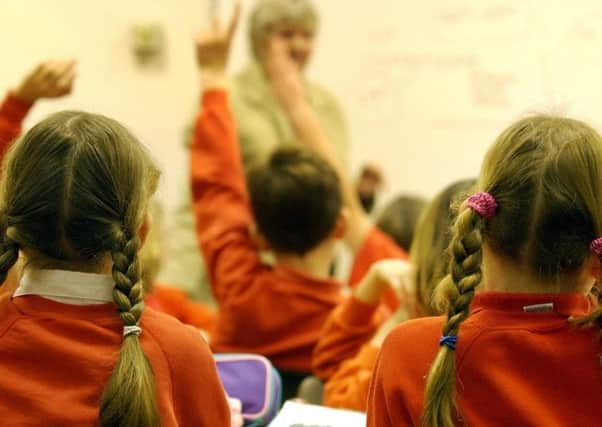Chris Keates: Lesson number one '“ children deserve world-class education


Yet again, a recent survey of NASUWT members has shown workload to be the number one concern of the profession. Data tracking, inspection and pupil assessment are driving the excessive bureaucracy that teachers are facing.
In a context of high-stakes accountability, many teachers are under pressure to undertake extra classes and revision sessions during lunchbreaks, after school, at weekends and during school holidays. In part, this pressure is a reflection of the huge significance of exam and test results and the consequences these can have for the fate of schools and teachers.
Advertisement
Hide AdAdvertisement
Hide AdHowever, there is no evidence that such interventions deliver any long-term benefit for pupils and there is mounting concern that such “interventions” are increasing the pressure on pupils from a very early age. For some children, this leads to anxiety, depression and self-harm. Teachers, too, are not immune from the impact of such pressure and the associated workload, long working hours and unacceptable management practices which are also taking their toll on teachers’ mental health.
At a time when the Government is in denial about the extent of the teacher recruitment and retention crisis, there is evidence that successive years of real-terms pay cuts for teachers is leading to graduates choosing employment careers other than teaching and record numbers of teachers choosing to leave.
NASUWT research shows that the average starting salary for comparable graduate professions is now at least 15 per cent higher than the national starting point for a qualified teacher.
Conference representatives will be sending a clear message to politicians across the UK that in order to continue providing a high-quality public education for every child and to ensure teaching is restored as the profession of choice for graduates, a substantial pay award is needed to ensure that teachers’ pay is competitive with salary levels in other graduate occupations.
Advertisement
Hide AdAdvertisement
Hide AdParents and the public should be in no doubt that governments which fail to invest in, and to improve the conditions of teachers, are also failing to invest in and improve the conditions of children and young people.
There is also research showing that for too many children access to core educational entitlements is increasingly dependent on parents’ ability to pay. Worryingly, we are now seeing increasing evidence that some schools are deliberately adopting policies which will drive up the costs to parents in order to discourage parents on lower incomes to choose their schools.
If parents know up front that it will cost them a princely sum to provide their child with uniform, books, equipment, and to pay for school trips, prom nights and so on, some parents will simply say to themselves that they cannot afford to send their child to a particular school. We are asking the Government to do something about this. Meanwhile pressures of the exam system on children and young people will be explored in greater depth during the conference as part of research looking at the issue of mental health among both pupils and teachers.
Figures suggest rates of mental ill health in the population as a whole are rising and the NASUWT’s casework bears this out. Excessive workload, the pressures of the accountability system and greater job insecurity are a toxic mix, leading to increasing levels of stress, depression, anxiety and burnout.
Advertisement
Hide AdAdvertisement
Hide AdToo often teachers fear negative consequences for their career if they are seen to not be coping and so feel they must conceal the issue, which inevitably makes the problem worse.
This year’s conference comes at a time when the wider political landscape has never looked more uncertain in the context of Brexit and what this will mean for workers’ rights and for investment in education. At a time of such uncertainty and turbulence, the role of education has never been so important in helping the UK to succeed after Brexit.
Our message is governments and administrations need to invest in world-class education for every child. Our decision-makers must take note and act.
Chris Keates is general secretary of the NASUWT.